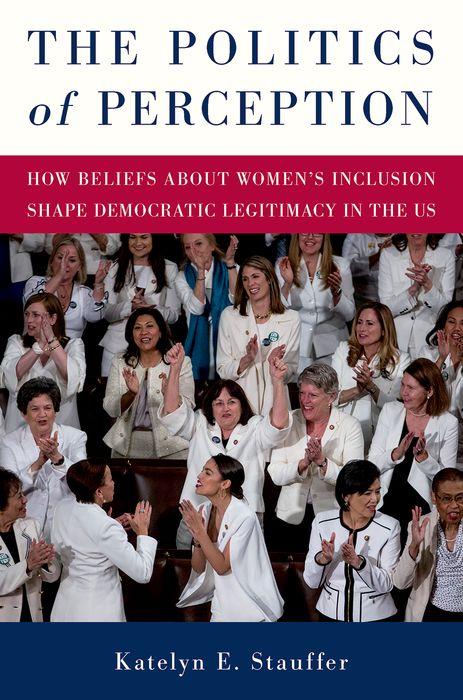
Zustellung: Fr, 02.01. - Di, 06.01.26
Noch nicht erschienen
VersandkostenfreiBestellen & in Filiale abholen:
In The Politics of Perception, Katelyn E. Stauffer tackles one of the central debates in research on women and politics--to what extent does the presence of women in office shape citizens' confidence in government and their views on democratic legitimacy? Stauffer unpacks the contradictions of previous research and offers clear and compelling evidence that Americans view women's inclusion as a component of good governance. Moreover, Stauffer shows that perceptions of women's inclusion also leads to an increase in positive associations with the legislative process, as well as greater confidence in institutions' policy expertise and ability to produce effective outcomes across a host of issue areas.
Inhaltsverzeichnis
- Acknowldgments
- List of Tables
- List of Figures
- Chapter 1: The Consequences of Women's Inclusion in Politics
- Chapter 2: Women's Descriptive and Symbolic Representation: A New Approach to Old
- Chapter 3: What Do Americans Know About Women's Inclusion in Office? And Who Knows It?
- Chapter 4: Perceived Inclusion and Feelings of External Efficacy, Trust, and Approval
- Chapter 5: How Perceived Inclusion Shapes Evaluations of Institutional Capacity
- Chapter 6: Does Partisanship Moderate the Relationship Between Perceived Inclusion and Attitudes Towards Government?
- Chapter 7: Making Misperceptions Reality
- Chapter 8: Conclusion
- Appendices
- Notes
- References
- Index
Produktdetails
Erscheinungsdatum
17. Dezember 2025
Sprache
englisch
Seitenanzahl
296
Autor/Autorin
Katelyn E Stauffer
Verlag/Hersteller
Produktart
kartoniert
ISBN
9780197811030
Bewertungen
0 Bewertungen
Es wurden noch keine Bewertungen abgegeben. Schreiben Sie die erste Bewertung zu "The Politics of Perception" und helfen Sie damit anderen bei der Kaufentscheidung.









